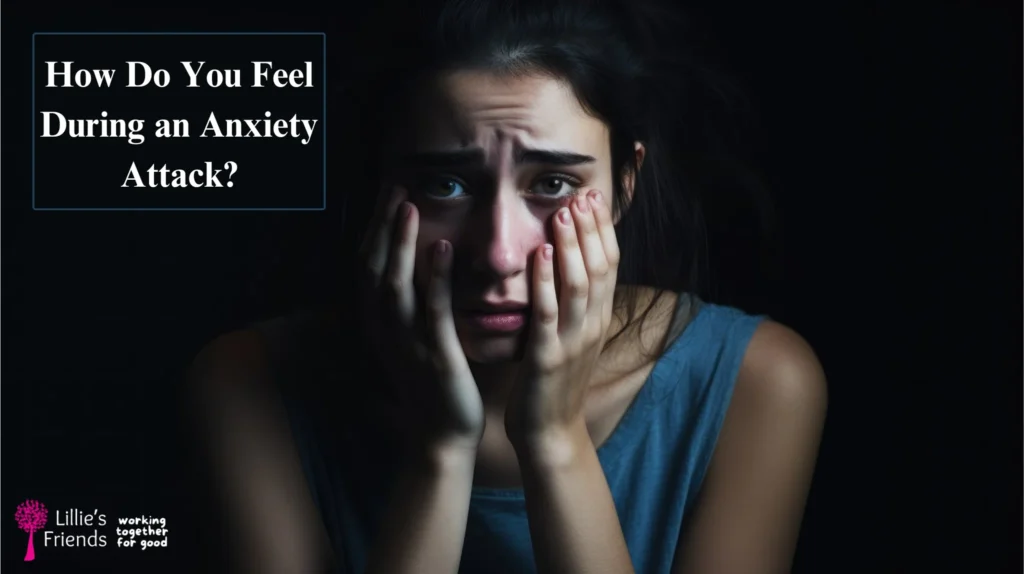How to Deal with Anxiety?
Dealing with anxiety involves a combination of strategies that can help manage symptoms and improve overall well-being. Here’s a concise guide:
1. Identify Triggers:
Understanding what triggers your anxiety is the first step. Triggers can be specific situations, thoughts, or physical sensations. Keeping a journal to note down when you feel anxious and what happened just before can help you identify patterns and triggers.

2. Practice Mindfulness:
Mindfulness involves staying present in the moment without judgment. Techniques such as deep breathing, meditation, or grounding exercises (like focusing on your senses) can help reduce anxiety by keeping your mind anchored to the present rather than worrying about the future.
3. Cognitive Behavioral Techniques:
Cognitive Behavioral Therapy (CBT) is a common approach to managing anxiety. It involves identifying and challenging irrational or unhelpful thoughts and beliefs. For instance, if you find yourself thinking, “I can’t handle this,” you can challenge this by considering past experiences where you managed similar situations successfully.
4. Physical Activity:
Regular physical activity can significantly reduce anxiety. Exercise releases endorphins, which are natural mood boosters. Activities like walking, running, or yoga can help dissipate the nervous energy that anxiety often brings.
5. Limit Stimulants:
Caffeine, sugar, and other stimulants can exacerbate anxiety. Reducing intake of coffee, energy drinks, and sugary snacks can help stabilize your mood. Alcohol can also be a trigger, so moderate consumption is advisable.
6. Adequate Sleep:
Poor sleep can increase anxiety, and anxiety can disrupt sleep, creating a vicious cycle. Establishing a regular sleep routine and creating a relaxing bedtime environment can help improve sleep quality, which in turn can reduce anxiety levels.

7. Social Support:
Talking to someone you trust about your feelings can provide relief. Sometimes just verbalizing your concerns can reduce their intensity. Support groups or therapy can also offer a space to share and receive guidance.
8. Professional Help:
If anxiety becomes overwhelming or persistent, seeking professional help is crucial. Therapists or counselors can offer techniques tailored to your needs, and in some cases, medication might be prescribed to help manage symptoms.
9. Healthy Lifestyle Choices:
Eating a balanced diet, staying hydrated, and avoiding substance abuse are fundamental. A healthy body supports a healthy mind, and good nutrition can influence brain function, including mood regulation.
10. Relaxation Techniques:
Progressive muscle relaxation, deep breathing exercises, and guided imagery are all techniques that can help reduce physical symptoms of anxiety. These methods promote a state of calm, reducing the intensity of anxious feelings.
11. Set Realistic Goals:
Break tasks down into manageable steps and set realistic goals. Overloading yourself with too much can increase stress and anxiety. Prioritize tasks, and focus on one thing at a time.

12. Positive Affirmations:
Repeating positive affirmations can help combat negative self-talk. Phrases like “I am in control” or “I am capable” can shift your mindset and reduce anxiety.
13. Acceptance:
Sometimes, accepting that you feel anxious rather than fighting it can reduce its power over you. Acknowledge your feelings and remind yourself that it’s okay to feel this way and that it will pass.
Incorporating these strategies into your daily life can make a significant difference in managing anxiety. It's important to be patient with yourself and recognize that progress may be gradual.